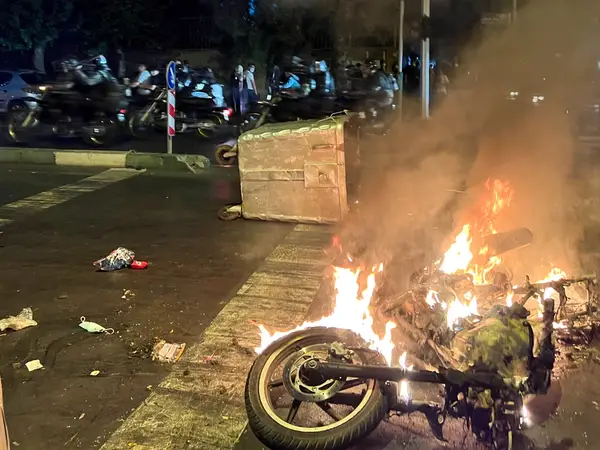Prominent Iranian sociologist Mohammad Fazeli says Iranians who have nothing to lose have united in the ongoing nationwide protests, demanding fundamental change.
Fazeli who was fired from the Tehran University earlier this year for expressing his views, said in an interview with reformist website Etemad Online that "The protests are led by a mechanism that has originated in Iran."
He pointed out that the Iranian people no longer live like the older generations thanks to the Internet. He added that the Iranian society has experienced a growth during the past 43 years and can no longer accept the values and standards introduced many years ago.
Trying to make sense of the protests that followed the death in custody of Mahsa Amini, a young woman, Iranian scholars and academics have been discussing the underlying reasons of the protests. Many of them say that the protests are not simply the outcome of recent events, but they are the product of more than 40 years of bad governance in Iran.
Fazeli said that there are many unresolved problems that have been accumulating during the past four decades, without any attempt by the government to address them. He said, "When President Raisi says he will probe into Mahsa Amini’s death, the people cannot trust him because similar cases in the past remained unresolved.”
Meanwhile, the absence of a prospect for the future after several decades of high inflation, near-zero economic growth, the decline of the administrative system and many other factors have left no hope in the future for the new generation. This has led to the emigration of educated individuals and flight of capital,” Fazeli added.
Worsening unemployment in the country has added another dimension to this national despair. Iranian youth cannot help but compare their situation to their counterparts in the UAE, Turkey, China and other countries, Fazeli explained. He further said that forcing the lifestyle of 43 years ago on the new generation is like forcing them to put on the outfit they used to wear when they were one year old.
The Mahsa Amini episode, said Fazeli, was simply a trigger that started the inevitable protests.
Meanwhile, in an article in Etemad newspaper, Abbas Abdi, a reformist commentator, asked whether the government's official policies can be effective in tackling the protests. Why protests take place one after another and nobody thinks of an effective solution. He opined that politics is about resolving or at least controlling conflicts in a non-violent way. Using force will lead to short-lived solutions but will not resolve the crisis.
Abdi criticized the Islamic Republic for failing to bring about any change to resolve crises that have emerged particularly during the past two decades. Meanwhile, he added that following wrong cultural, social and economic policies as well as unresolved foreign policy problems have created the current crisis.
The government's introduction of the morality police has been humiliating for young Iranians, particularly young women, Abdi argued, adding that professionals such as doctors, engineers, artists, writers and so on experienced this humiliation in other ways that constantly enraged them.
Meanwhile, in a commentary in Arman Melli newspaper, reformist academic Sadeq Zibakalam wrote that both supporters and critics of the Iranian government are currently worried about the country's situation. The Iranian government has not changed its approach toward protests, and it has not sought the insight of moderate politicians. It refuses to accept that part of the society does not agree with the lifestyle hardliners want to impose. Zibakalam maintained: "Ignoring this dissatisfaction in the Iranian society will not solve the government's problems."
